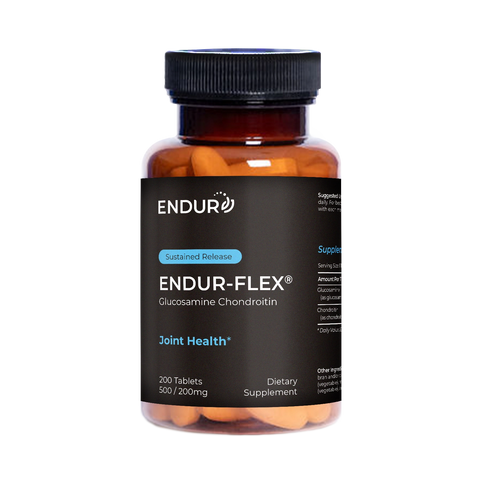Getting a great night’s sleep isn’t just about feeling rested—it’s the foundation for how we think, move, and enjoy life every day. If you’re searching for a natural way to support healthier sleep, you’re not alone. Millions try various methods, but did you know that science points to one type of exercise as the single most effective for improving sleep quality?
You don’t need fancy equipment or extreme workouts to enjoy more restful nights. Researchers have taken a close look at the relationship between movement and sleep—and what they found might surprise you. Let’s explore how movement can help you rest easy.
Why Sleep Quality Matters for Everyone
Quality sleep is when your body and mind recover, repair, and reset for life’s challenges. Without it, even everyday routines feel tougher: energy dwindles, concentration slips, and it’s harder to stay active. While there’s no shortage of advice out there—from blue light blockers to herbal teas—not all solutions are equally supported by science.
What does the research really say? One recent study published in the April 2025 issue of the BMC Public Health looked at the effects of different types and amounts of exercise on sleep to pinpoint which works best.
The Research: Exercise and Sleep Quality
For this study, the investigators used a network meta-analysis—a powerful statistical tool that allowed them to compare many different exercises across numerous studies. They included 86 randomized, controlled trials, involving more than 7,200 adults, and set out to answer a simple question: Is there a certain type of exercise that works best for sleep?
What Types of Exercise Did They Study?
The scientists grouped exercise modalities into six categories:
-
Aerobic Exercise: Movement like walking, biking, swimming, or jogging that raises your heart rate.
-
Resistance Training: Workouts using weights, bands, or bodyweight.
-
Combined Aerobic & Resistance Training: Blends of cardio and strength.
-
Yoga: Mind–body practices focused on stretching, breath, and balance.
-
Pilates: A low-impact form of exercise focused on controlled movement, flexibility, and core strength.
-
Traditional Chinese Sports: Activities such as Tai Chi.
(For a detailed review, see: Wang H, et al., 2025, BMC Public Health)
Key Findings: The Most Beneficial Exercise for Sleep
All forms of movement supported sleep quality compared to doing nothing—but one method stood out.
-
Pilates was found to be the most helpful exercise for improving sleep quality.
-
Aerobic and combined aerobic/resistance exercise also offered significant support for healthy sleep, but not quite as much as Pilates.
Regardless of age, background, or fitness level, the study showed that adding regular Pilates—a slow, intentional, and accessible practice—had the greatest positive impact.
How Much Exercise is Enough?
Success came down to not just the type, but the amount of exercise:
-
Pilates: Three sessions weekly, each lasting 30–45 minutes, brought the biggest benefit for sleep.
-
Aerobic exercise: About four hours weekly (such as four 60-minute brisk walks or classes) worked well.
-
Consistency counted most. Routines that were too infrequent or overly intense didn’t help as much as these “best fit” recommendations.
This pattern formed a “U-shaped curve”—with moderate, regular movement supporting sleep quality far better than too little or too much exercise.
Why Is Pilates So Effective?
But what makes Pilates so special for supporting restful nights? Researchers believe the answer lies in its unique blend of gentle, controlled movement, breathing techniques, and mind–body focus. Unlike strenuous routines, Pilates helps you unwind while strengthening your core, releasing muscle tension, and calming busy thoughts. It improves flexibility, alignment, and balance—all of which may contribute to a more relaxed, ready-for-sleep feeling.
Plus, Pilates can be adapted for all ages and fitness backgrounds, making its benefits available to anyone looking for a simple way to support sleep and everyday vitality.
Action Steps: How You Can Use This Research Today
Here’s how you can incorporate these findings into your own routine:
-
Start With What’s Comfortable: If you’re new to Pilates, simply start with three 30- to 45-minute sessions per week. Try on-demand classes, YouTube tutorials, or in-person sessions.
-
Prefer Cardio? If Pilates isn’t your preferred style, aerobic activity (like brisk walking, swimming, or cycling) for four 1-hour sessions weekly can also support your sleep.
-
Maintain a Moderate Routine: More is not always better. Rest and gentle movement are both important, so listen to your body.
-
Track Your Progress: Give your new movement practice 3–4 weeks. Often, positive changes in how you sleep and feel will appear gradually.
-
Mix and Match: Combine gentle Pilates with other favorites—like a walk with a friend or yoga on weekends—for variety.
Turning Movement Into a Sustainable Habit
Sticking to a new routine can be challenging, especially during busy seasons. Here are some practical tips to keep your new movement and sleep-support journey on track:
-
Schedule it in: Book your Pilates or walk just like an important appointment.
-
Enlist a friend: Exercising together can boost accountability and bring more fun.
-
Prepare your space: Set out your mat or walking shoes the night before as a gentle nudge.
-
Celebrate small wins: Notice how you feel after sticking with your new movement habit.
How Endur™ Products Can Help You Stay Consistent
As you create habits that support better rest, it’s important to keep your energy balanced and ensure your body gets the nutrients it needs, especially when adding new movement to your weekly routine. This is where the Endur™ line from Endurance Products Company can be a helpful companion.
Whether you’re looking for nutritional support to boost cellular energy, electrolyte balance to help retain the fluids you drink for optimal hydration, or targeted support to help maintain flexible joints, Endur™ products can support your goals with high-quality supplements designed to fit into your active lifestyle.* Endur™ formulas are developed with research-backed ingredients, carefully crafted for people who want to feel and perform their best— consistently.
The Big Takeaway: Restful Nights Are Within Reach
The path to better sleep is often simpler than we think. Scientific evidence shows that the right movement, practiced regularly, can help you get the restful nights and brighter mornings you want. Starting with Pilates or your favorite aerobic activities three or four times a week can be a gentle but powerful step forward.
Remember, positive routines make a real difference when practiced consistently. Consider coupling your new sleep-support practice with the foundational nutrition of the Endur™ line to help you move, sleep, and feel your best—every day.
*This statement has not been evaluated by the Food and Drug Administration. This product is not intended to diagnose, treat, cure, or prevent any disease.
Resources
Wang H, Xin X, Pan Y. The best approaches and doses of exercise for improving sleep quality: a network meta-analysis and dose-response relationship study. BMC Public Health. 2025;25(1):1371. doi:10.1186/s12889-025-22570-1




